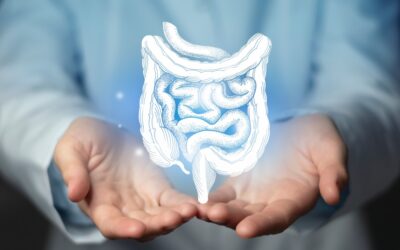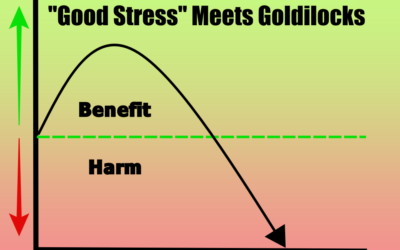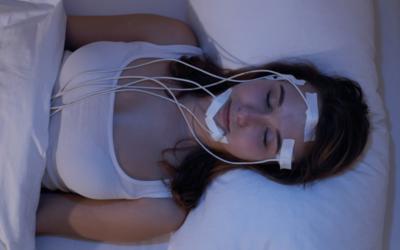Health Benefits of Daily Sunlight
There are two sides to every coin—and two stories to tell about sunlight.
Skincare enthusiasts and specialists, it seems, have taken a definitive stand against the sun, branding it as a villain that causes premature aging and leads to skin cancer.
But what most people don’t know is that it can be problematic only in substantial doses.
If you get it in the right amounts early in the day, it can do wonders for your body.
Why You Should Soak In The Sun: 10 Glorious Reasons
We’re highlighting seven of the most profound benefits of sunlight to give you the push you need to get outside for a safe and healthy body and mind.
1. Aids Weight Management
People who get light exposure are likely to have a lower body mass index.
This could be due to two reasons:
- You’re getting enough sleep, which can decrease your risk of obesity, or
- Sunlight is shrinking your fat cells, as found in a 2018 study in scientific reports.
Keep in mind that these sunlight benefits apply to light received during the daytime, between 8:00 a.m. and 12:00 p.m., for it to make a notable difference.
2. Boosts Mood
Low levels of serotonin play a causal role in depression, just like low levels of vitamin D.
Exposure to sunlight might reverse that by increasing the production of vitamin D and stimulating the production of serotonin. This neurotransmitter sends messages between brain nerve cells to regulate mood.
Serotonin plays a crucial role year-round, but its importance cannot be stressed enough in the fall and winter when sunlight is scarce. That’s why selective serotonin reuptake inhibitors (SSRIs) are used to treat Seasonal Affective Disorder (SAD), so getting some sun could be all you need to keep depression at bay.
3. Extends Life Expectancy
A 2014 study found that the risk of all-cause death in people who avoided sun exposure was twofold higher than that of those who spent quality time in the sun.
This could be because sunlight boosts vitamin D and serotonin levels and enhances the function of our immune system, which can lower our risk of disease.
4. Lowers Blood Pressure
Hypertension can cause heart disease and stroke. Unfortunately, treatment for this is often limited to avoiding risk factors, including insufficient sunlight.
You can tackle this by spending more time in the sun. The UV rays will lower your systolic blood pressure by increasing the production of nitric oxide, a molecule that does the work of a vasodilator by widening (dilating) arteries.
5. Lowers Cortisol Levels
Bright light could decrease the levels of cortisol. This does more than regulate your body’s stress response; it also counterbalances your insulin to help maintain blood sugar and suppress your appetite and cravings to prevent weight gain.
It’s a jack of all trades AND a master of them all.
6. Prevents Certain Cancers
Excessive sunlight has been linked to skin cancer, but in moderation, it could result in a 30-50% reduced risk of developing certain cancers, including:
- Breast cancer
- Colon cancer
- Prostate cancer
Sunlight could also give you better fighting chances against pancreatic cancer, Hodgkin’s lymphoma, and ovarian cancer. However, these benefits of the sun are restricted to specific sections of the population and require more research to solidify the claims.
7. Regulates The Immune System
Sunlight allows our body to make vitamin D from the 7-dehydrocholesterol in the skin. It also activates key immune cells like T-cells by making them move faster. This helps regulate the body’s immune system, which is associated with protecting your body against infections from invaders.
8. Strengthens Bones
Not getting enough vitamin D can do a number on your bones, making them soft, weak, and it could even contribute to bone-wasting diseases like osteoporosis.
That’s why you need to spend some quality time in the sun.
Sensible sun exposure can cause your body to create the vitamin D it needs to thrive. And since vitamin D can help maintain calcium homeostasis, soaking in the sun might be all you need to maintain strong bones and prevent bone fractures.
9. Supports Better Sleep
Melatonin is a hormone that helps you fall asleep. It is released in the evening, as darkness sets in, but it works in conjunction with circadian rhythms to prepare your body for catching some quality forty winks.
Seeing bright light in the morning signals your body to stop producing melatonin. This could help reset your body’s circadian clock and help you sleep better at night.
10. Treat Skin Conditions
Small amounts of UV radiation can suppress the clinical symptoms of skin conditions like atopic dermatitis, localized scleroderma, psoriasis, and vitiligo. It may also improve eczema. However, the benefit of the sun tends to vary on a case-by-case basis. So, it would be a good idea to consult a dermatologist for the most appropriate treatment course.
How Much Sun Is Too Much Sun?
So how much sun should you get a day?
Well, we don’t have a one-size-fits-all answer.
The color of your skin, age, diet, medical history, and the climate of your region are all factors to consider. This due diligence will ensure you reap the benefits of sun exposure without the problems that come with persistent light.
Typically, 10-15 minutes should do the trick for light-skinned folks, as they tend to get sunburned quickly. However, those with darker skin may have to stay a bit longer—25-40 minutes, to reap its benefits because they have higher levels of melanin content in their skin, which provides superior protection against UV radiation.
In Conclusion
So, is sun good for you?
The answer is a resounding yes—provided you get it in the right amounts.
Sun bath benefits for the body and mind abound, and they are best availed of in the wee hours of the morning. However, as you get ready for a stroll in the neighborhood, don’t forget to apply a generous coat of sunscreen with SPF 30 or higher; it will protect your skin from sunburn, signs of premature aging, and skin cancer.
The power of protein on weight management
Weight management can be a challenging journey for many individuals, but with the right approach, achieving a healthy and sustainable weight is possible. Among the various factors that influence weight loss success, the role of protein cannot be overstated. Protein is...
Progressive Muscle Relaxation: Guide to Optimal Health
In today's fast-paced and stress-ridden world, finding effective methods to promote relaxation and restore balance in our lives has become paramount. One technique that has gained considerable recognition in recent years is Progressive Muscle Relaxation (PMR). PMR has...
Unveiling the Health Secrets Within: Understanding the Gut Microbiome
The human body is home to trillions of microorganisms, forming a complex ecosystem within our gastrointestinal tract (GIT) known as the gut microbiome. Long overshadowed by the spotlight on human cells, this intricate community of bacteria, viruses, fungi, and other...
Exploring the Connection Between Cortisol, Stress, and Overall Health
The “Longevity” game is not about living long, but living “well”. And the hidden player calling the shots might be cortisol, aka the stress hormone. As stress permeates our lives, its effects on our overall health become increasingly apparent. In this article we will...
Managing Stress with Diabetes Made Easy: Tips That Tip the Scale in Your Favor
Over 537 million people around the world live with diabetes. The condition affects a whopping 10.5% of the adult population, and there’s no denying how difficult it can be to manage it. One day, you’re living life to the fullest—eating your favorite cake, regularly...
Exploring the Interplay Between Cancer Risk, Physical Activity, and Obesity: Unveiling the Pathways to Prevention
In an era where health consciousness is gaining paramount importance, the relationship between cancer risk, physical activity, and obesity has emerged as a significant area of investigation. As you and I - and many of our friends - are impacted by this scary disease,...
Hormetic Stress: The Good Stress For A Happy Healthy Life
It’s so easy to be tempted by the allure of comfort. In fact, technology and society have convinced us that this is of the upmost importance. You’re cold? Turn on your thermstat. Don’t like that noise? Drown it out with “white noise”. Feeling hungry? No problem. The...
Sarcopenia: Impact on health and longevity
Implications Of Sarcopenia On Health And Longevity It is easy to assume that losing some strength is a “normal part of aging”. In fact, maybe you have even heard this from your healthcare providers. The truth is that getting “weaker” as we age is not “normal” and...
Is Reverse Osmosis Water Filtration Better For You?
Water is essential for life, but not all water is created equal. Tap water can contain harmful contaminants and chemicals that can have adverse effects on our health. This is where reverse osmosis water purification comes in. Reverse osmosis (RO) is a highly effective...
Can a sleep study improve health?
Sleep is an essential part of our daily routine. Quality sleep might also be a critical factor in maintaining good health. However, many people suffer from sleep disorders that can lead to serious health problems. A sleep study is a diagnostic test that can help...











